Peaceworks
Publications
Articles, publications, books, tools and multimedia features from the U.S. Institute of Peace provide the latest news, analysis, research findings, practitioner guides and reports, all related to the conflict zones and issues that are at the center of the Institute’s work to prevent and reduce violent conflict.
State of the Union: Obama Expected to Outline Challenges, Successes Overseas
The thrust of tonight's State of the Union speech will be on the economy, jobs and civility in political discourse, with members of both parties sitting side-by-side in a display of bipartisanship. Read more of USIP's preview of Obama's State of the Union address.
On the Issues: Iran
The United States enters another year without diplomatic relations with Iran. Around the world nations worry about the potential of Iran to develop its nuclear program. Can a strategy of engagement with Iran yield results? Can the sanctions effort prevail? Or is the military option still on the table. Robin Wright, USIP-Wilson Center Scholar looks at the issues.
New START Debate Spotlights Strategic Posture Commission Guidance
With the U.S. Senate’s ratification of the New Strategic Arms Reduction Treaty (New START), the United States and Russia now await the Russian parliament’s likely ratification to make important reductions in their strategic nuclear arsenals. Throughout debate, senators on both sides of the aisle cited the findings and recommendations of the 2009 Strategic Posture Commission, chaired by former secretaries of defense William Perry and James Schlesinger.
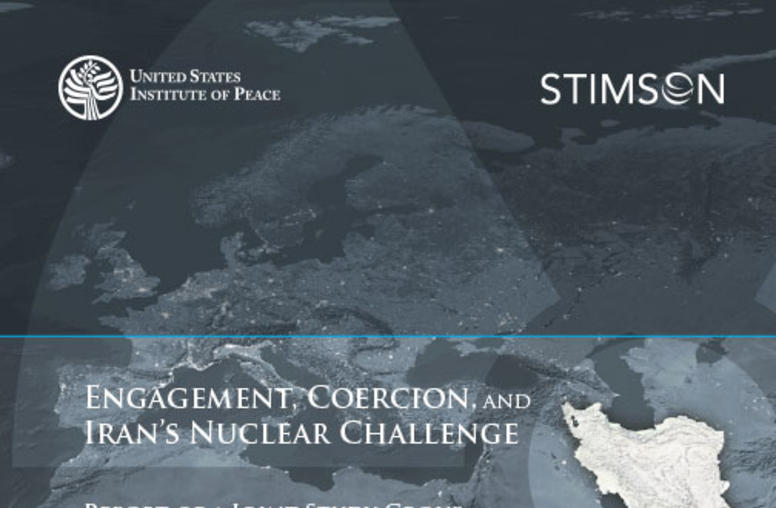
Engagement, Coercion, and Iran’s Nuclear Challenge
Facilitated by the U.S. Institute of Peace and the Stimson Center, "Engagement, Coercion, and Iran's Nuclear Challenge" is the culmination of recommendations from a distinguished group of more than 40 scholars and policy analysts, who met regularly over the past year to evaluate how the U.S. should proceed in its strategy with the Islamic Republic of Iran.
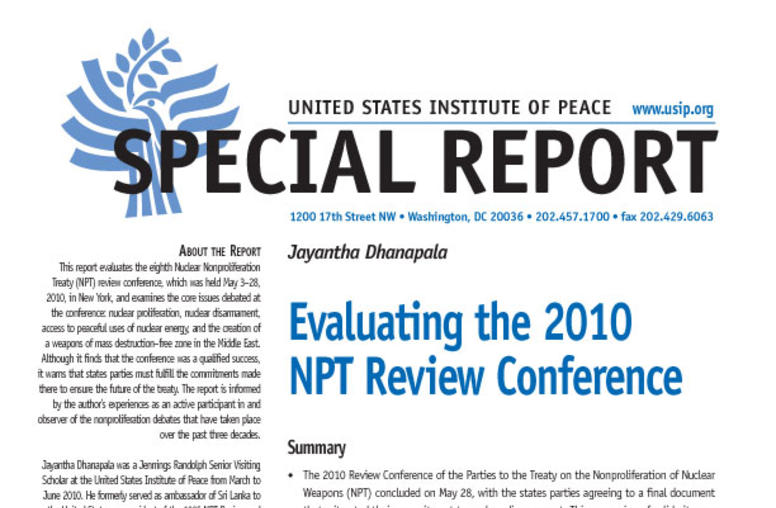
Evaluating the 2010 NPT Review Conference
This report evaluates the eighth Nuclear Nonproliferation Treaty (NPT) review conference, which was held May 3–28, 2010, in New York, and examines the core issues debated at the conference: nuclear proliferation, nuclear disarmament, access to peaceful uses of nuclear energy, and the creation of a weapons of mass destruction–free zone in the Middle East.
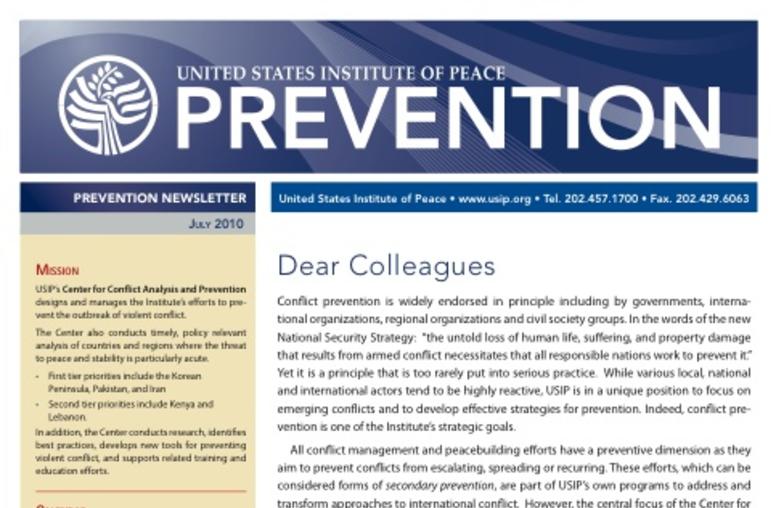
USIP Prevention Newsletter - September 2010
The bimonthly Prevention Newsletter provides highlights of CAP's conceptual work, its region specific work aimed at helping to prevent conflicts in Africa, the Middle East, South and Northeast Asia, and the special projects on genocide prevention and nonproliferation. It also provides Over the Horizon thinking on trends in different regions, as well as CAP events, working groups and publications.
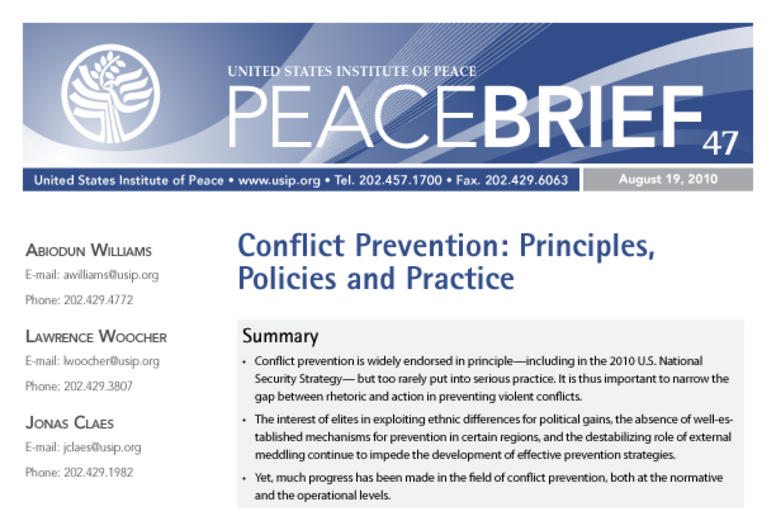
Conflict Prevention: Principles, Policies and Practice
On July 1, 2010, the U.S. Institute of Peace organized an all-day conference entitled "Preventing Violent Conflict: Principles, Policies, and Practice." The goals of this conference were to spotlight the importance of conflict prevention, to foster productive discussions between leading scholars and distinguished practitioners, and to identify priority areas for future work on conflict prevention by the Institute and the field at large. This Peace Brief provides an overview of that day's disc...
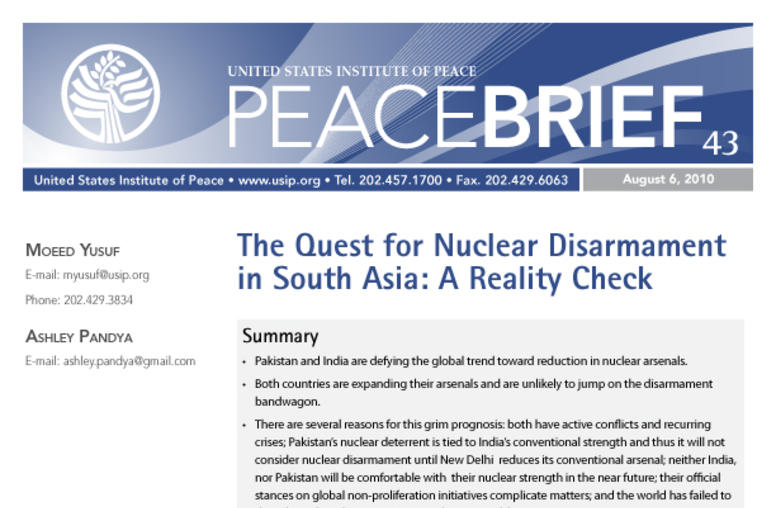
The Quest for Nuclear Disarmament in South Asia: A Reality Check
Pakistan and India are defying the global trend toward reduction in nuclear arsenals. This Peace Brief looks at several reasons for this prognosis.
Science Diplomacy for Conflict Prevention
The Center of Innovation for Science, Technology, and Peacebuilding is evaluating the potential for international scientific and technical collaborations to aid in conflict prevention and resolution.
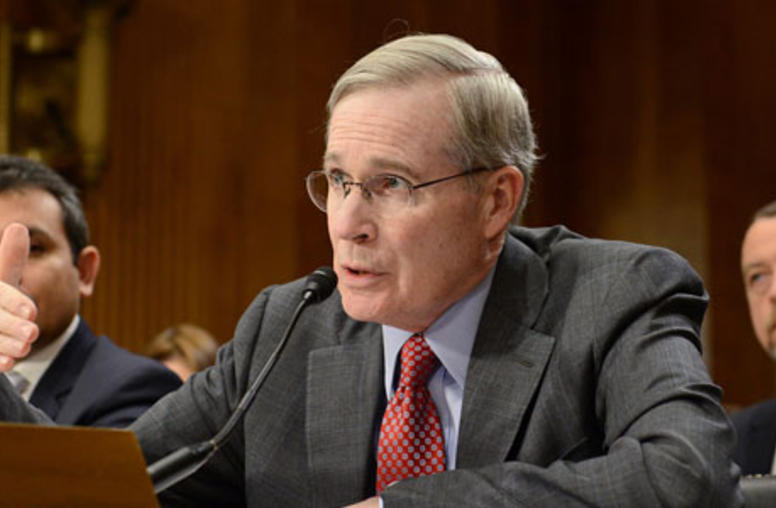
Stephen J. Hadley Testifies on the New START Treaty
Stephen J. Hadley, senior adviser for international affairs, testified before the Senate Committee on Foreign Relations on the new START Treaty on June 10, 2010.